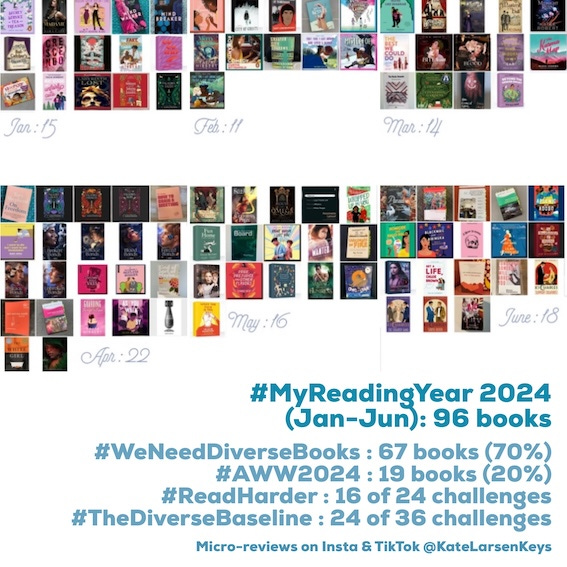Organisational ethics | One year of Public. Open. Space. | The plea for a four-day week
Plus... my mid-year reading update and another chance to join the online launch of Kind of, Sort of, Maybe, But Probably Not
Organisational ethics and deficit areas
It’s unsurprising that these polycrisis times have led to lots of conversations about how organisations are coping and responding: what we do, how we do it, and how we behave when doing so.
My latest ‘and another thing’ vlog ties together three key themes or deficit areas that have come out some of these recent conversations, observations and my ongoing governance reading.
With thanks to all those who have shared their thoughts and fears on this issues, these include:
A lack of general governance readiness for when things start to go wrong;
Poorly articulated organisational ethics and values that don’t hold up when tested; and
The decimation of formal and information ways of being with and communicating with each other, through the normalisation of previously unthinkable behaviours.
The full version of these vlogs are usually exclusively for my Patreon followers, but this one’s available to all.
If you’d like the full versions or more of these rants, you can join me as an advocate, ally or accomplice for rethinking the art of governance from just $2.50/month. With huge thanks to Freyja for joining Team Patreon this month.
Happy first birthday, Public. Open. Space.
It’s been a year since the good folk at Fremantle Press released my debut poetry collection, Public. Open. Space., into the world. And what a year its been…
“Kate Larsen’s [poetry collection] is one of the most interactive poetry volumes I have ever read,” editor Georgia Richter said at its Walyalup/Fremantle launch. “It invites participation and it invokes reflection. It is deeply political, and it points to the invisible web of the virtual community that connects us as much as our actual community.”
“Public. Open. Space. is not always an easy read because the world's not always an easy place to comprehend,” author Laurie Steed added. “Instead, this book is essential in every sense of the word. It's a space where resistance is vital, rather than futile. It's a space where as the reader, you are encouraged to both fight and to take flight.”
At the Naarm/Melbourne launch, cultural leader Esther Anatolitis noted that: “Larsen’s work rehumanises the institutions that shape our lives – and she does this radically, as well as quietly, sensitively. There’s a tentativeness to her approach, offering a great deal of context. There’s a reluctance to centre herself and her own experience, ever conscious of the privilege of being the beneficiary of ongoing colonisation. There’s a gentleness there – and then there’s bold incitement to revolution! ‘Burn it down’! ‘Blow it up’! ‘Start again’!”
And author Jennifer Mills observed at the Tarntanya/Adelaide launch that: “Kate’s work is of the internet, but it also lives fully on the page here. A book, Kate’s introduction tells us, that directly questions ‘the choices we make about when to stay silent,’ its silences are always loaded, and there is a profound awareness of the need for a critical eye that reads into, between and around the texts and truths we’re offered, online and off. The space in Public. Open. Space. is essential, and the use of white space in these pages is always meaningful. Kate’s poems address us directly and ask us again and again where we stand. Ask us to take a stand.”
Happy anniversary, little green book. I’m so grateful that this was a dream that came true, and to all those who helped make that happen.
Throwback to… all taking Mondays off
With Australia’s arts, cultural and non-profit workforce even more depleted and precarious then when I recorded this vlog this time last year (which feels like an impossibly long time ago), the radical possibilities of moving the entire sector to a four-day working week are more relevant and strategic than ever.
Mid-year reading update
As a self-confessed book-nerd for whom reading is my only sport, I make predictions for each reading year, which I then track, analyse and share. Importantly, these are personal and non-competitive estimates, not comparisons or targets. Because READING IS NOT A COMPETITION. Whatever, however and however much you read is fantastic, valid and valuable. When it comes to reading, everybody wins.
That being said, I read 96 books between January and June 2024, including:
67 books for the unofficial #WeNeedDiverseBooks challenge (70% of my reading total), in line with the campaign to create a world where every reader can find themselves in the pages of a book.
19 books by Australian women writers for the #AWW2024 challenge (20% of my reading total).
16 of the 24 challenges in Book Riot’s #ReadHarder Challenge that invites readers to explore formats, genres and perspectives beyond their reading comfort zones (66% at 50% of the year).
24 of the 36 challenges for #TheDiverseBaseline Reading Challenge to read a minimum of 3 books by nonwhite and mixed race authors per month for the entirety of 2024 (66% at 50% of the year).
Rescheduled: Kind of, Sort of, Maybe, But Probably Not online launch (21/7)
Good news, book fans. The online launch of Kind Of, Sort Of, Maybe, But Probably Not by the amazing Imbi Neeme has been rescheduled to Sunday 21 July at 8pm AEST.
This delightful book is a nostalgic, Garner-esque stroll through 1990’s Melbourne about secrets, friendships and embracing our whole selves.
Join me and Imbi for a chat about books, letter writing, flatmates and found families by registering for your free place online.




